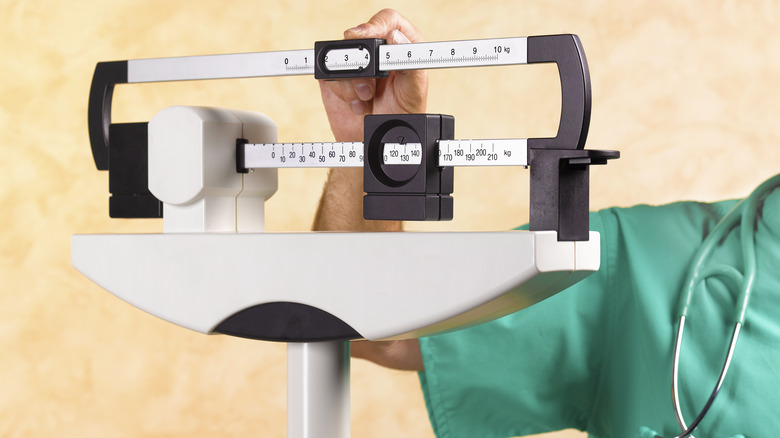
What Happens To Your Cholesterol When You Follow The Atkins Diet – Health Digest
Have you been hunting for a diet that is easy to understand and follow, has been around for a while, and could help you control your cholesterol? You’ll probably come across the Atkins diet in your search. Research suggests that it might be beneficial, but your results may vary depending on the foods you eat and the way your body responds to a strictly low-carbohydrate lifestyle. The diet is based on a low-carbohydrate foundation: It prioritizes the consumption of proteins and fats while restricting carbohydrate intake, especially during the first weeks. Some produce is allowed on the Atkins diet, making it a little different from other low-carbohydrate diets like the carnivore diet.
As the Mayo Clinic explains, the Atkins diet is typically the regimen of choice for people who want to lose weight. Since the diet unfolds in several phases, it provides a step-by-step way for dieters to gain dominance over their high-calorie carbohydrate consumption. The first phase reduces carbohydrates dramatically; each subsequent phase allows a minimal amount of carbohydrates to be reintroduced, but only to a point where a desired weight can be maintained.
Taking an expert look at the Atkins diet-cholesterol connection
When asked about the effect of the Atkins diet on dieters’ cholesterol levels, Dr. Jonathan Clinthorne, Senior Good’s senior director of nutrition and education, lays out a couple of possible scenarios. “HDL, often referred to as “good” cholesterol, typically increases on low-carb diets, which is seen as a positive effect,” he shares exclusively with Health Digest. “LDL, commonly known as “bad” cholesterol, may also rise on long-term low-carb diets. However, LDL can be classified as ‘large buoyant LDL’ and ‘small dense LDL.’ Small dense LDL tends to increase when people consume too many refined carbohydrates (ex. bread, pasta, and pizza), while large buoyant LDL is associated with higher saturated fat intake. Small dense LDL is considered more harmful for cardiovascular health.”
For this reason, Dr. Clinthorne recommends not focusing solely on LDL cholesterol and instead concentrating on attaining a healthy weight. He notes that since weight loss is frequently used as a lever to reduce cholesterol levels, embracing the Atkins diet can be an appropriate first step. However, choosing healthier fats is essential because saturated fats can raise cholesterol. Consequently, Dr. Clinthorne favors the use of olive oil, avocados, nut, and seed oils instead of saturated fats to keep cholesterol in check.
Understanding the uneven cholesterol outcomes of the Atkins diet
Of course, even Atkins dieters who opt for unsaturated fats aren’t guaranteed to decrease in their cholesterol. Speaking with Medical News Today, Dr. Liam R. Brunham, a professor from the University of British Columbia, shares that some people who go on extremely carbohydrate-limited eating plans exhibit increased cholesterol levels. Says Brunham, “When people shift their caloric intake from carbs to fat, and especially if it is predominantly saturated fat such as from animal products, LDL cholesterol and [apolipoprotein B] will go up.” He clarifies, however, that this doesn’t happen consistently: “There is a subgroup of people that will have severe hypercholesterolemia [abnormally high cholesterol levels] … This is the group in whom the greatest increase in cardiovascular risk was observed.”
This doesn’t mean the Atkins diet is off the table if you want to modify your eating habits, lose weight, and control your cholesterol. You just may have to be selective when picking from Atkins diet-approved foods. For instance, Dr. Clinthorne advises consuming a lot of nutrient-heavy vegetables and low-sugar fruits to ensure that you’re getting the most nutrition throughout the day. Additionally, though meat and poultry are allowed on the Atkins diet, you may want to get picky about the types of meat you choose. According to Medical News Today, while organ meats, some red meat, and processed meats (e.g., bacon, sausage) are allowed on low-carbohydrate diets like the Atkins diet, they can raise cholesterol levels.





